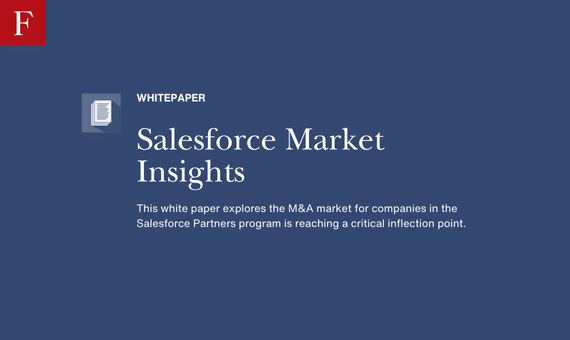
ServiceNow Partners: A Hot M&A Market

Salesforce Partners: A Compelling M&A Opportunity in IT

Salesforce Market Insights

ServiceNow Market Insights






Securities transactions conducted by FOCUS Securities LLC, an affiliated company, registered broker-dealer and member FINRA/SIPC © 2025 FOCUS Investment Banking LLC
Securities transactions conducted by FOCUS Securities LLC, an affiliated company, registered broker-dealer and member FINRA/SIPC © 2025 FOCUS Investment Banking LLC